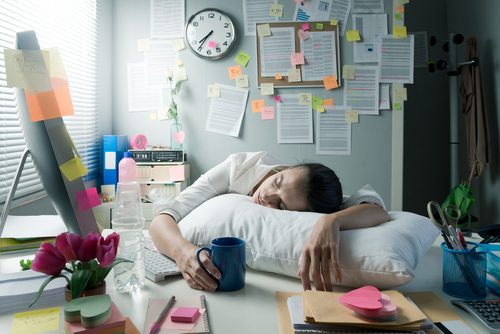Should we eliminate daylight saving time and why?

Image from Shutterstock.com.
Sleep is a resource that can be hard to come by, especially for legal professionals. When daylight saving time struck this past weekend, lawyers, judges and others who work in the legal industry across the country lost an hour of sleep—a sacrifice that can take a toll on health.
The time switch upsets sleep patterns, and it can take multiple days for a circadian rhythm to readjust, according to CBS News and Vox. The disruption can increase irritability, limit concentration and lead to “cyber loafing”—perusing the internet aimlessly instead of being productive.
Even with National Napping Day encouraging midday slumbers, the demands of a work schedule can leave anyone—especially those who work in the field of law—feeling exhausted after daylight saving time.
This week, we’d like to ask: Should we eliminate daylight saving time and why? How many hours of sleep do you need to be effective at work? Did you find it harder to be productive after the daylight-saving time switch? And how do you cope with sleep deprivation while on the job?
Answer in the comments and on social media. You can answer via Facebook, Twitter and LinkedIn.
Read the answers to last week’s question: Who do you think is an inspiring woman in law and why?
Featured answer:
Posted by Ann Pharr: “I’d recognize Susie Marshall Sharp, who was the first woman elected to be chief justice of a state supreme court. She was elected in North Carolina in 1962 by statewide popular vote. She was recommended for the U.S. Supreme Court by Sen. Ervin, but then President Nixon declined to nominate her.”
Do you have an idea for a future question of the week? If so, contact us.



